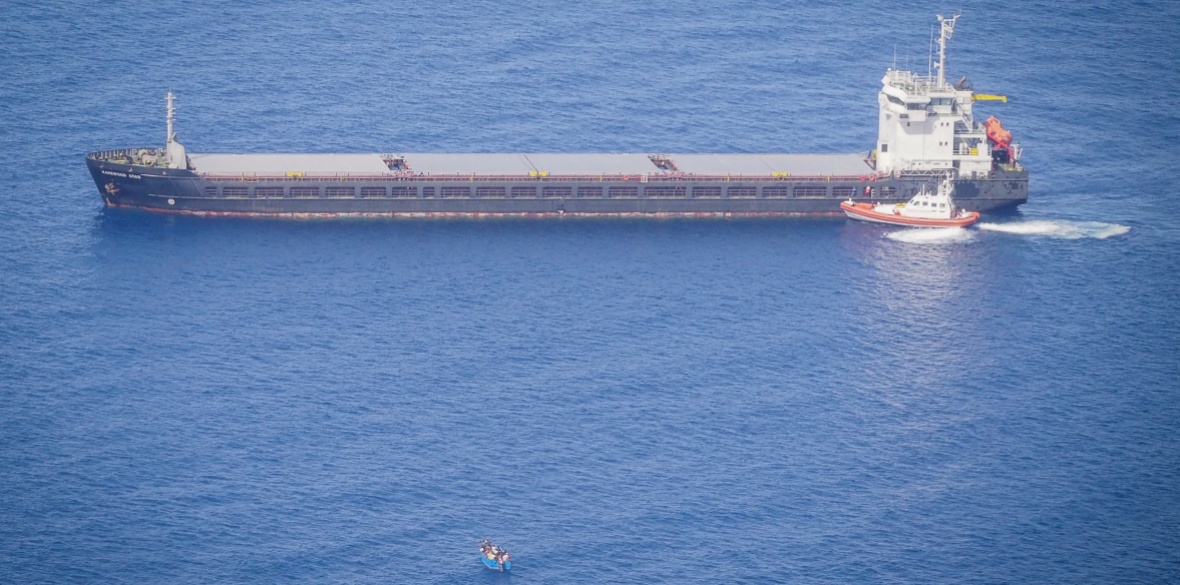This is the last article you can read this month
You can read more article this month
You can read more articles this month
Sorry your limit is up for this month
Reset on:
Please help support the Morning Star by subscribing here
AN ITALIAN coastguard vessel failed to rescue refugees who were just a nautical mile away from its position in the central Mediterranean on Monday afternoon.
The refugee distress hotline organisation Alarm Phone was contacted on Sunday morning by a boat in distress that had fled from war-torn Libya.
It was not until the following day that Alarm Phone was able to get hold of the refugees’ GPS position.
Alarm Phone passed the boat’s position on to the Italian and Maltese authorities as well as the human rights monitoring plane Moonbird, an aircraft operated by German refugee rescue charity Sea Watch.
Moonbird’s crew spotted a wooden boat carrying between 50 to 60 people inside Malta’s search and rescue (SAR) zone near the Italian island of Lampedusa on Monday morning.
The plane returned later that afternoon and found a Bahamian cargo ship, the Karewood Star, and an Italian coastguard patrol boat less than a mile from the refugees.
When the Moonbird relocated the boat at about 8.15pm, the crew saw the refugees still adrift in their boat, the Karewood Star close by. The Italian coastguards had gone.
“They are still at sea,” Alarm Phone tweeted this morning.
“The Italian coastguard was on the scene but failed to rescue, confirming to us they are not co-ordinating a rescue in Malta’s SAR. Stop playing games with people’s lives!
“[The] cargo vessel Karewood Star was nearby, monitoring the boat in distress but not rescuing.
“We spoke to its company and they confirmed that they have not taken the people on board. Once more a case of non-assistance by state and non-state actors in the Mediterranean.”
The Italian and Maltese coastguards had not responded to requests for comment by the time the Star went to print.
The International Maritime Organisation (IMO), the UN body responsible for regulating international shipping, told the Star that it could not comment on an ongoing situation.
The IMO did, however, provide the Star with a copy of its principles and practices concerning the rescue of migrants at sea.
It states that ships’ masters have “an obligation to render assistance to those in distress at sea without regard to their nationality, status or the circumstances in which they are found.
This is a long-standing maritime tradition as well as an obligation enshrined in international law,” these being the 1982 UN Convention on the Law of the Sea and the 1974 International Convention for the Safety of Life at Sea.
"Every state,” the 1982 law says, “shall require the master of a ship flying its flag … to render assistance to any person found at sea in danger of being lost” and “to proceed with all possible speed to the rescue of persons in distress, if informed of their need of assistance, in so far as such action may reasonably be expected of [them].”

 Ben Cowles
Ben Cowles










